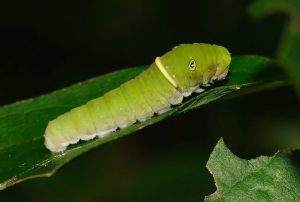
In Part 1 of the Planting for Pollinators post, we discussed the importance and decline of pollinators.
Now, step out into your yard for a bit. If the only plants you can identify are “green ones,” no worries. The Marion County Extension Service can help you decipher between what is friend and what is foe. For pollinators in particular you’re going to want to look for two things, food plants and host plants.
Food plants (also called nectar plants) provide pollen, nectar, and sometimes berries for pollinators. Bees and small butterflies benefit the most from open-faced flowers like our native blanket flowers, beach sunflowers, asters, and coreopsis. Large butterflies and hummingbirds have specially designed tongues that allow them to eat from long tubular or trumpet-shaped blooms like coral honeysuckle, crossvine, or salvias. Some plants such as golden dewdrop or hollies provide both flower nectar and berries for multiple pollinators to enjoy.
Host plants are sometimes overlooked but without them no pollinator garden is complete. Host plants provide food for caterpillars to eat and places for pollinators to live and reproduce. These can also be very specific to one type of pollinating insect. Monarch butterfly caterpillars, for instance, eat only milkweeds. Passionflower vine is also host specific for our Gulf fritillary butterfly. But please be aware! Caterpillars may decimate their host plants down to bare stems which can be unsightly. Do not use insecticides. These plants are serving their purpose and will almost always recover from their sacrifice.
The list of plants for pollinators is extensive but choose plants that are best suited for your soil, light and water conditions, and planting zone (in Marion County we’re zone 9a). For help with plant selection, please click here for our Florida-Friendly Landscaping™ Guide to Plant Selection & Landscape Design. The Extension Service can also help with soil testing and plant recommendations. Be sure to read the tags to avoid purchasing any plants treated with insecticides such as neonicotinoids which are toxic to the pollinators we want to protect.
 0
0
